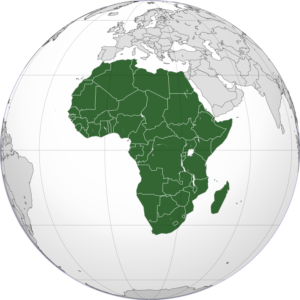African Countries Mobilize for Carbon Markets Despite Article 6 Deadlock
Developing countries — and companies inside them — are moving forward with cross-border cooperation and knowledge-sharing under Article 6.2 of the Paris Agreement even as negotiations remain deadlocked over the role of nature-based solutions.

8 December 2023 | DUBAI | Climate negotiations that focus on international carbon credits (ICCs) through Article 6 of the Paris Agreement remain stalled at the 28th Conference of the Parties (COP 28) to the United Nations Framework Convention on Climate Change (UNFCCC), but government pavilions — and especially those of African countries — are buzzing as nations move forward with domestic frameworks and international arrangements, although delegates said the wheel of government also turn lowly.
Article 6 of the Paris Agreement governs international carbon credits, and the implementation of three paragraphs – Articles 6.2, 6.4, and 6.8 – remains in limbo. Article 6.2 provides a framework within which countries can trade among themselves, bilaterally or multilaterally, and Article 6.4 provides a centralized mechanism administered by the UNFCCC. Article 6.8 covers non-market transfers.
With four days of talks remaining, negotiators are stuck on key definitions and how prescriptive the methodological guidance for removals should be under Article 6.4. Those rules will have major implications for whether nature-based credits are recognized under Article 6.4.
“Article 6 is sector agnostic, so it’s not saying from the outset that any sector can’t be included,” said Kelley Hamrick Malvar of The Nature Conservancy. “So if, for example, the guidance were to come out and say anything that has a risk of reversals must ensure permanence for a thousand years, then that would effectively cut out nature.”
Different Countries, Different Speeds
Speaking on a panel, Alick Muvundika, Acting Deputy Director of Zambia’s National Institute for Scientific and Industrial Research, pointed to several advances that his country has made in cooperation with the North Korean government but pointed out that different components of his and all governments work at different speeds.
Kenya, for example, has already updated its Climate Change Act to regulate carbon markets, offering clarity to regulators and project developers alike, while Zambia is working with ad hoc guidelines until legislation can be developed – possibly in the first quarter of 2024, according to Muvundika.
“Right now, we have benefit-sharing requirements, but they’re too subjective,” he said. “Some developers will go to a local chief, give them something, and then leave a bit to the community, but it’s not really a fair arrangement,” he said. “It’s been a headache.”
On the same panel, the think tank Climate Focus said it was finalizing an update to its 2020 publication, “The Landscape of Article 6 Implementation,” in cooperation with Perspectives Climate Group. The update will offer a comprehensive summary of several Article 6 readiness processes. A hard copy shared after the panel confirmed what we’ve seen anecdotally: dozens of governments moving forward with legislation, registries, and cross-border arrangements but reticent to offer too many details until other components of the domestic strategies are finalized.
Not surprisingly, the countries’ states of readiness reflect their past activities. Countries like Ghana, which has been working on REDD readiness since the mid-2000s, are significantly more advanced than others that have kept a more hands-off approach to voluntary carbon markets. The country has established eligibility criteria for projects within its borders and has developed jurisdictional crediting through ART Trees and the LEAF Coalition.
Common Themes
The upcoming Climate Focus/Perspectives document, which bears the same name as the 2020 publication, identifies several themes common to most of the countries it examined – such as steps to create a domestic registry, a willingness to establish eligibility requirements for Internationally Transferred Mitigation Outcomes (ITMOs), which will require corresponding adjustments, and a similar desire to prescribe activities allowed in the voluntary carbon market.
Legislation
African private sector representatives are also here in force, and many expressed mixed feelings about moves to regulate voluntary carbon markets.
Many countries lack legislative frameworks related to carbon credits, even if they hosted significant emission reduction projects. Implementing Article 6 is prompting countries to adopt new regulations and update existing regulations, providing a more secure legal foundation for institutional and administrative arrangements. Legal frameworks are crucial not only for these arrangements but also for addressing the international legal treatment of carbon credits, facilitating standardized documentation for derivatives, and ensuring legal certainty for taxation and accounting purposes.
Rwanda in the Limelight
Rwanda has the highest profile of the countries present – largely because it authorized the first corresponding adjustment associated with an individual project.
To implement its Nationally Determined Contributions (NDCs), the country plans to raise $11 billion, with $5.7 billion for mitigation and $5.3 billion for adaptation measures. Of the total, $6.9 billion will come from international sources.
The country is developing a cap-and trade system, as well as a domestic registry, and it has signed cooperation agreements with Singapore and Kuwait for Article 6 implementation.
More on the Bionic Planet Podcast
For more on COP 28, visit the Bionic Planet podcast. Bionic Planet’s coverage from COP is being sponsored by Ecosystem Marketplace.
Please see our Reprint Guidelines for details on republishing our articles.

